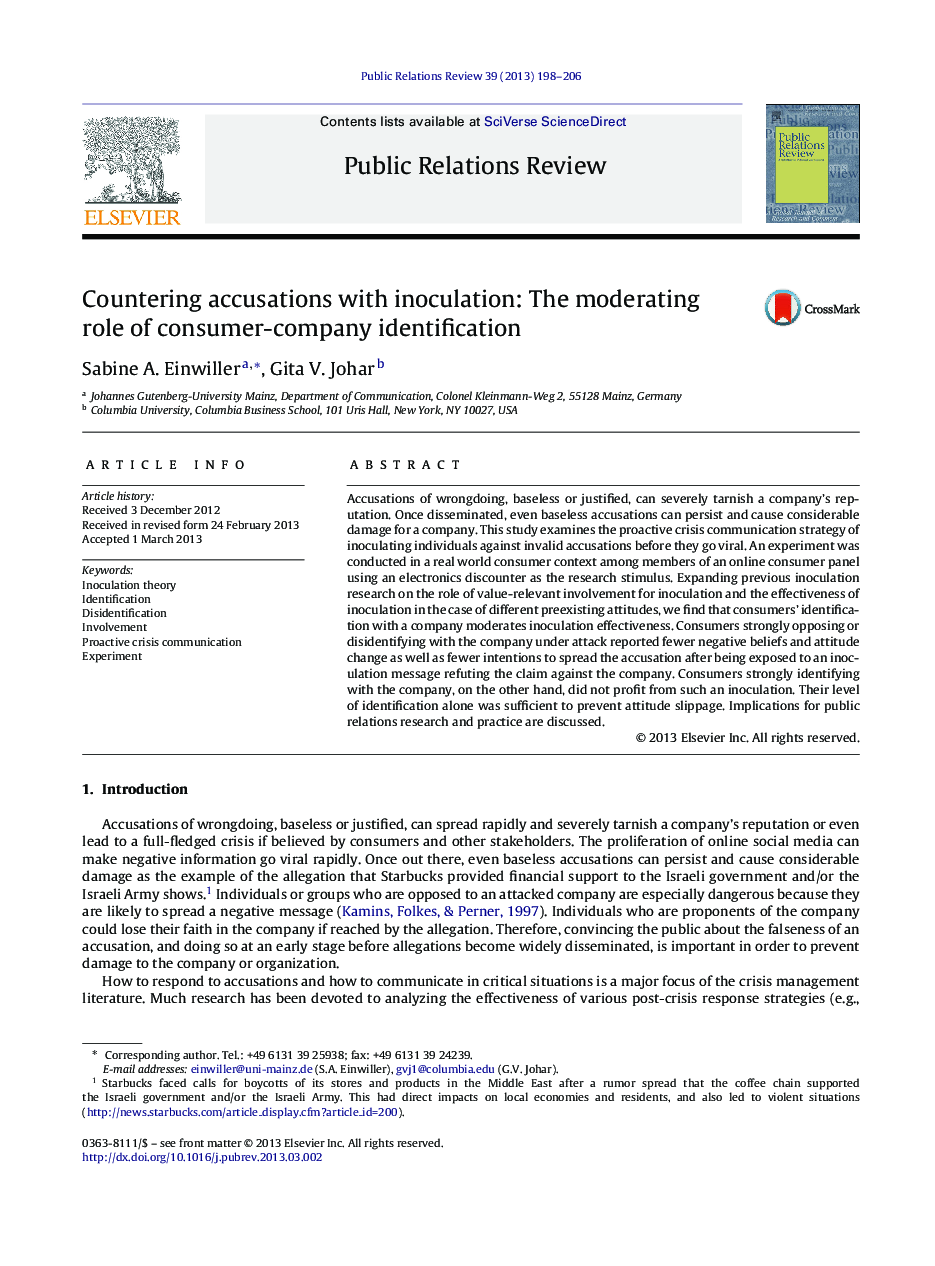| Article ID | Journal | Published Year | Pages | File Type |
|---|---|---|---|---|
| 139415 | Public Relations Review | 2013 | 9 Pages |
•We examine the proactive crisis communication strategy of inoculation.•We analyze the role of preexisting identification with the criticized company.•Results show that disidentifiers’ attitudes are protected by inoculation.•Identifiers’ attitudes are not further protected by inoculation.•We challenge the notion that inoculation works best in a supportive environment.
Accusations of wrongdoing, baseless or justified, can severely tarnish a company's reputation. Once disseminated, even baseless accusations can persist and cause considerable damage for a company. This study examines the proactive crisis communication strategy of inoculating individuals against invalid accusations before they go viral. An experiment was conducted in a real world consumer context among members of an online consumer panel using an electronics discounter as the research stimulus. Expanding previous inoculation research on the role of value-relevant involvement for inoculation and the effectiveness of inoculation in the case of different preexisting attitudes, we find that consumers’ identification with a company moderates inoculation effectiveness. Consumers strongly opposing or disidentifying with the company under attack reported fewer negative beliefs and attitude change as well as fewer intentions to spread the accusation after being exposed to an inoculation message refuting the claim against the company. Consumers strongly identifying with the company, on the other hand, did not profit from such an inoculation. Their level of identification alone was sufficient to prevent attitude slippage. Implications for public relations research and practice are discussed.
